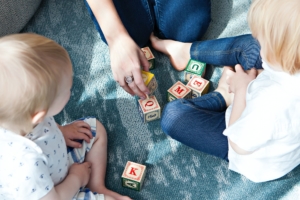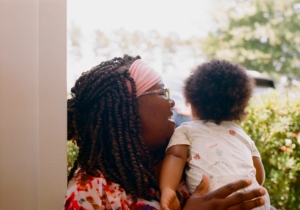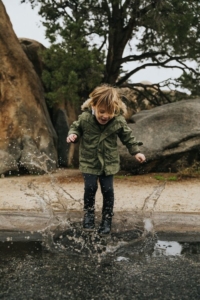Some parents find themselves contemplating whether they should stay together for the kids as their marriage breaks  down. For some parents, divorce is the only viable option. And while all parents might be concerned about a variety of things, such as their future living situation or the ambiguity of the custody agreement, they might be most concerned about how children of divorce will handle it.
down. For some parents, divorce is the only viable option. And while all parents might be concerned about a variety of things, such as their future living situation or the ambiguity of the custody agreement, they might be most concerned about how children of divorce will handle it.
You may be wondering what psychological effects divorce has on children. It varies. All children experience the stress of divorce, but some children recover more quickly than others. The good news is that parents can take action to lessen how divorce affects kids psychologically. Kids can adjust to the changes divorce brings about with the help of a few supportive parenting techniques. Santa Monica Christian Counseling can help you in dealing with these challenges and provide support for both parents and children.
Why the first year is hardest for children of divorce
According to research, kids experience the most difficulty in the first year or two following the divorce. Distress, anger, anxiety, and disbelief are likely to be experienced by children.
However, a lot of kids seem to recover. They adjust to changes in their daily schedules and become at ease with their living conditions. Others, on the other hand, never truly seem to return to normal. After their parents’ divorce, a small percentage of children may continue to have issues, possibly for the rest of their lives.
Divorce’s emotional toll
Even though divorce causes emotional turmoil for the entire family, it can be especially frightening, perplexing, and frustrating for children:
Young children frequently find it difficult to comprehend why they must travel between two homes. They might be concerned that if their parents can grow apart, then perhaps one day they too will lose love for them. Children in elementary school may worry that they are to blame for the divorce. They might think they acted inappropriately or fear that they did.
Teenagers may become very irate over a divorce and the resulting changes. They might hold one parent responsible for the breakdown of the marriage, or they might hold one or both parents responsible for the turmoil in the family.
Of course, every circumstance is different. In extreme cases, if a divorce results in fewer fights and less stress, a child may feel relieved by the separation.
Stress related to divorce
Children who experience divorce typically lose daily contact with one parent, usually the father. Reduced contact has an impact on the parent-child bond, and research shows that after divorce, many children feel less connected to their fathers.
 The relationship between a child and the custodial parent – typically a mother – is also impacted by divorce. The stress levels of primary caregivers are frequently higher when single parenting is involved. Mothers are frequently less loving and supportive after divorce, according to a 2013 study. Additionally, their discipline deteriorates and loses its effectiveness.
The relationship between a child and the custodial parent – typically a mother – is also impacted by divorce. The stress levels of primary caregivers are frequently higher when single parenting is involved. Mothers are frequently less loving and supportive after divorce, according to a 2013 study. Additionally, their discipline deteriorates and loses its effectiveness.
The hardest part of parental separation may not be for all children. Instead, the stressors that come along with it are what make divorce the most challenging. The additional stressors that make divorce challenging include moving, changing schools, living with a single parent who feels a little more frazzled, and more.
Financial difficulties are also frequent after divorce. Many families are forced to downsize or relocate, and they frequently have fewer material resources. All of these things have an impact on children.
Risks families face
In about 40% of new marriages in the U.S. in 2013, one spouse had previously been married, and in 20% of new marriages, both spouses had previously been married. That means a lot of kids deal with changes in their family structure. Another significant change may be the introduction of a stepparent and possibly some stepsiblings.
Second marriages have an even higher failure rate than first marriages which can create even more change for kids. Over the years, a great number of children endure multiple separations and divorces.
Mental health problems in children of divorce

Children of divorce may be more susceptible to mental health issues. The psychological problems that divorced parents’ children experience are more severe regardless of age, gender, or culture.
Children who experience divorce may experience an adjustment disorder that passes in a matter of months. However, research has also shown that kids with divorced parents have higher rates of anxiety and depression.
Behavior issues.
In comparison to children from two-parent families, children from divorced families may exhibit more externalizing issues, such as conduct disorders, delinquency, and impulsive behavior. Children may encounter more peer conflict in addition to an increase in behavioral issues following a divorce.
A poor academic record.
Academic performance varies among kids from divorced families. A 2019 study, however, found that children from divorced families tended to struggle in school if the divorce was unanticipated, in contrast to children from families where the divorce seemed more likely and expected to happen.
Taking risky actions.
Teenagers who have divorced parents are more likely to engage in risky behaviors like drug use. Teenagers in the US who have divorced parents report using alcohol, marijuana, tobacco, and other drugs more frequently than their peers do.
Similarly, these teens are more likely to engage in sexual activity. A 2010 study found that adolescents were particularly at risk for starting to have sexual relations before the age of 16 if their parents divorced when they were 5 years old or younger. Separation from fathers has also been linked to more teenage girls having sexual partners.
Helping children of divorce to adjust
Adults who went through a divorce as children might have more relationship issues. People whose parents divorced have higher divorce rates. Children’s adjustment to divorce is greatly influenced by their parents. The following techniques can lessen the psychological impact divorce has on children:
Co-parent harmoniously.
Children’s distress has been shown to increase when parents are in bitter disagreement. Children who display overt hostility, such as yelling and threatening one another, are more likely to behave poorly. However, even a little tension can make a child more upset. If you have trouble co-parenting with your ex, get professional assistance.
Avoid placing children in the middle.
It is inappropriate to ask children to rank their favorite parent or to give them advice for other parents. Children who are caught in the middle are more likely to suffer from anxiety and depression.
Keep up good relationships.

Children may adjust to divorce better if their parents have open lines of communication, are warm toward them, and have little conflict. Children who have a positive parent-child relationship after a divorce tend to have higher self-esteem and perform better academically.
Use discipline consistently.
Make age-appropriate rules and, if necessary, enforce them with penalties. Effective punishment after divorce reduced delinquency and enhanced academic performance, according to a 2011 study.
Keep an eye on adolescents.
Teenagers are less likely to experience behavioral issues after a divorce when parents pay close attention to what they do and whom they hang out with. This increased awareness and decrease in behavior issues imply a lower likelihood of substance use and fewer academic issues.
Empower your kids.
Children who feel like they can’t handle the changes or who see themselves as helpless victims are more likely to have mental health issues. Teach your child that, despite the difficulty of going through a divorce, he has the mental fortitude to do so.
Teach coping techniques.
Children who have active coping mechanisms, such as problem-solving abilities and cognitive restructuring abilities, adjust to divorce better. Teach your child healthy ways to regulate his thoughts, feelings, and actions.
Make children feel safe.
A lot of anxiety can be brought on by worries about the future and the fear of abandonment. In addition to reducing clinginess, making your child feel loved, secure, and safe can also lower their risk of developing mental health issues.
Ask for parental education.
Numerous initiatives are available to lessen the effects divorce has on children. Co-parenting techniques and methods for assisting children in adjusting to the changes are taught to parents. A trained counselor can help you find these resources.
Get expert assistance.
Your child may benefit greatly if you manage your stress. To assist you in adjusting to the changes in your family, engage in self-care activities and think about talking therapies or other options. Contact us and speak to a counselor at Santa Monica Christian Counseling today to receive help.
“Playing with Blocks”, Courtesy of Marisa Howenstine, Unsplash.com, CC0 License; “Mother and Child”, Courtesy of Sir Manuel, Unsplash.com, Unsplash+ License;”Splash”, Courtesy of Nathan Dumlao, Unsplash.com, CC0 License;”Bath Time”, Courtesy of Getty Images, Unsplash.com, Unsplash+ License


